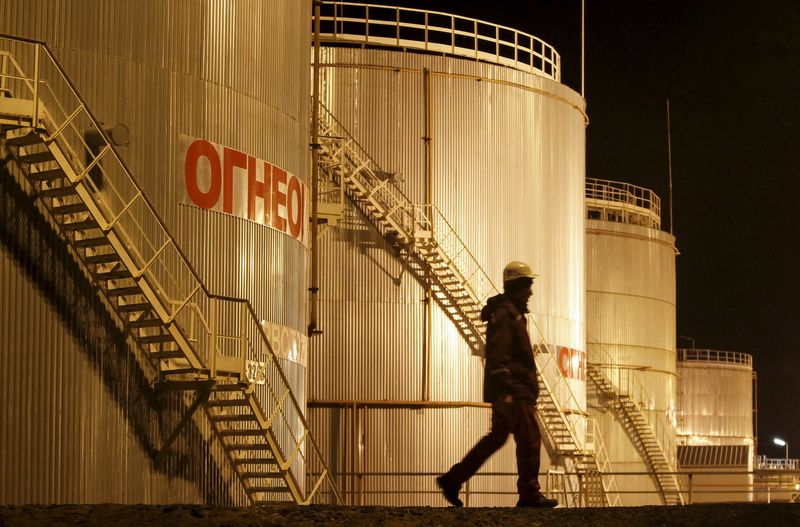Hedge funds cut NFLX, keep big bets on MSFT, AMZN, add NVDA
By Barani Krishnan
Investing.com -- Crude prices rose as much as 3% on Tuesday, rebounding after a three-day slide that took a barrel to below the $100 support, triggering short-covering.
Imminent data on U.S. oil inventories, expected from both industry group API and government agency EIA, also led to buying on dips by market participants since Monday’s settlement.
Brent crude, the London-traded global benchmark for oil, was up $2.86, or 2.8%, at $105.02 per barrel by 2:18 PM ET (18:18 GMT).
Brent lost 4% in the previous session, extending last week’s 4.5% slide. On Monday, it touched an intraday low of $99.26 as top oil buyer China grappled with a new Covid surge and the Federal Reserve appeared bent on doubling down on U.S. rate hikes.
West Texas Intermediate, or WTI, the New York-traded benchmark for U.S. crude, was up $3.60, or 3.7%, at $102.14 in Tuesday’s trade.
On Monday, WTI lost 3.4%, touching an intraday bottom of $95.31, after a 4.5% slide last week.
“The $95 low on WTI has been a tough nut to crack and since we went there yesterday, without really going below it, it triggered a wave of short-covering,” said John Kilduff, founding partner at New York energy hedge fund Again Capital.
Market participants were also on the lookout for U.S. weekly oil inventory data, due after market settlement from API, or the American Petroleum Institute.
The API will release at approximately 4:30 PM ET (20:30 GMT) a snapshot of closing balances on U.S. crude, gasoline and distillates for the week ended April 22. The numbers serve as a precursor to official inventory data on the same due from the U.S. Energy Information Administration on Wednesday.
For last week, analysts tracked by Investing.com expect the EIA to report a crude stockpile build of 2.0 million barrels, versus the 8.02-million barrel reduction reported during the week to April 15.
On the gasoline inventory front, the consensus is for a draw of 761,000 barrels over the 976,000-barrel decline in the previous week.
With distillate stockpiles, the expectation is for a drop of 2.66 million barrels versus the prior week’s slide of 829,000.
